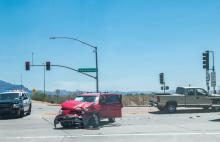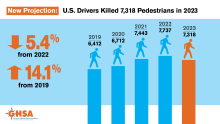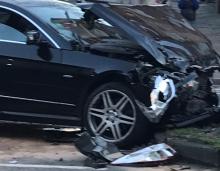Concern has been raised at the risks faced by older drivers following the publication of a report produced jointly by research group TRIP and the American Association of State Highway and Transportation Officials (AASHTO).
The report reveals that older drivers are more likely to be killed in intersection crashes than young drivers. Data for 20120 from the National Highway Traffic Safety Administration (NHTSA) shows that 37% of fatal accidents involving drivers aged 65 and over involved an intersection. B
Concern has been raised at the risks faced by older drivers following the publication of a report produced jointly by research group 5196 TRIP and the 3510 American Association of State Highway and Transportation Officials (AASHTO).
The report reveals that older drivers are more likely to be killed in intersection crashes than young drivers. Data for 20120 from the2467 National Highway Traffic Safety Administration (NHTSA) shows that 37% of fatal accidents involving drivers aged 65 and over involved an intersection. By comparison, only 20% of accidents involving younger drivers occurred at an intersection.
The figures showed that the number of deaths involved drivers aged 65 and above reached 5,750 in 2010, climbing above the 5,288 recorded for 2009. The study also revealed safety issues for older drivers when making left turns.
A separate study by the5193 University of Kentucky has shown that that older drivers can have problems estimating the speed of oncoming vehicles and difficulty in judging appropriate gaps in oncoming traffic when turning left. Better street lighting, longer merge and exit lanes, as well as brighter and simple road signs could help the older drivers however.
The report reveals that older drivers are more likely to be killed in intersection crashes than young drivers. Data for 20120 from the
The figures showed that the number of deaths involved drivers aged 65 and above reached 5,750 in 2010, climbing above the 5,288 recorded for 2009. The study also revealed safety issues for older drivers when making left turns.
A separate study by the







